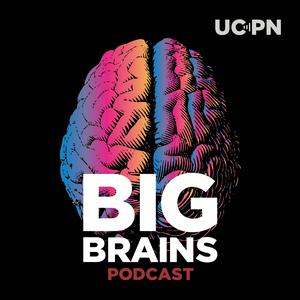In today’s world, our brains are overloaded with information, making it hard to focus and remember. But what are the true limits of the human mind—and why do they exist? And why are some people seem so much better than remembering things than others? In this episode, we talk with with Edward Awh, a cognitive neuroscientist and professor of psychology at the University of Chicago. Whose lab studies how the brain controls focus, memory and attention.
His research explores the connection between attention and working memory, why our conscious awareness is far more limited than it feels, and what those limits mean for life in an information-saturated world. He explains what we can actually do to improve our memory—including one easy thing we can all do every day—and how using the “remote control of your mind” could help you focus your attention, given the limited space in our brains.
Hosted by Simplecast, an AdsWizz company. See pcm.adswizz.com for information about our collection and use of personal data for advertising.


